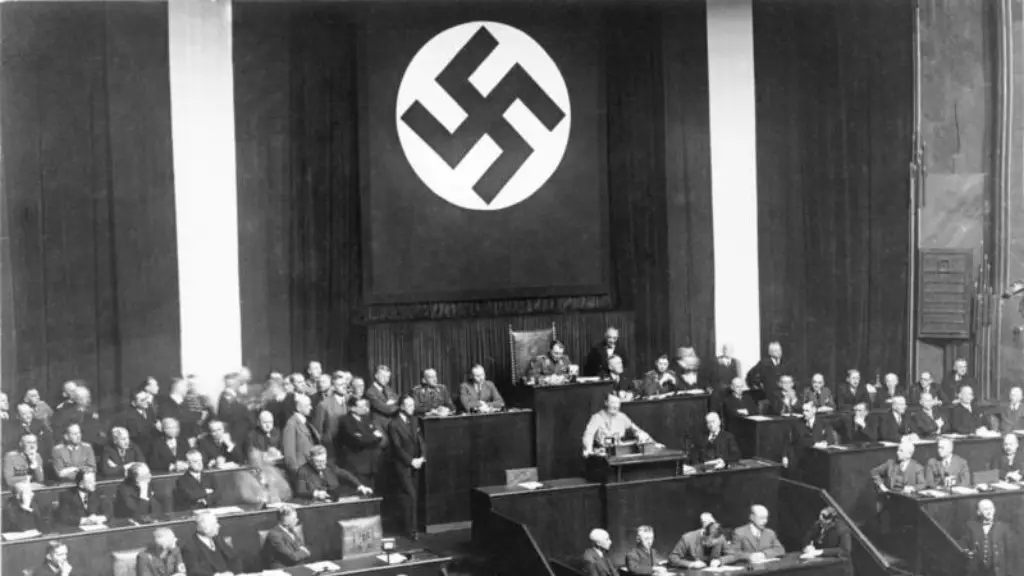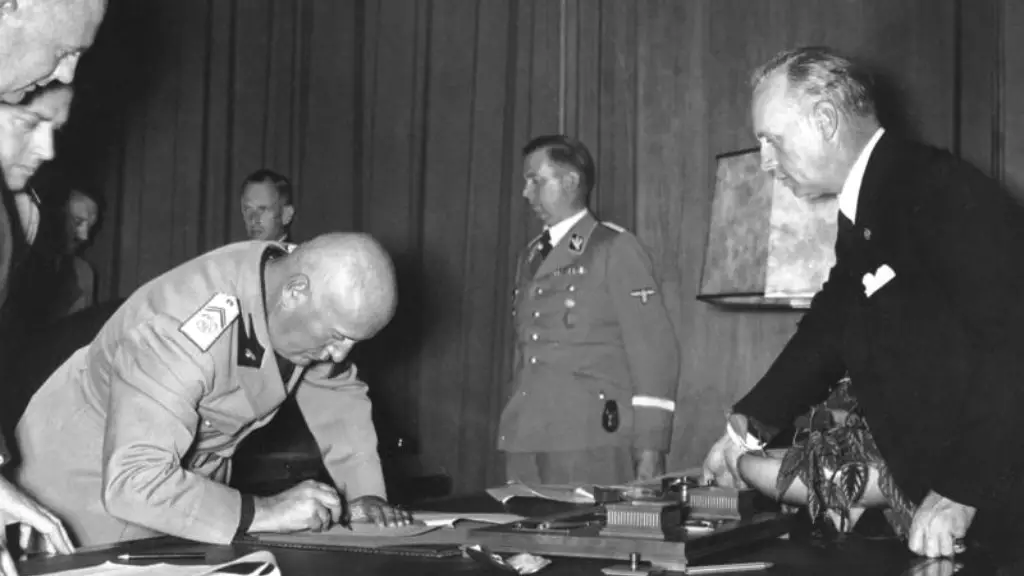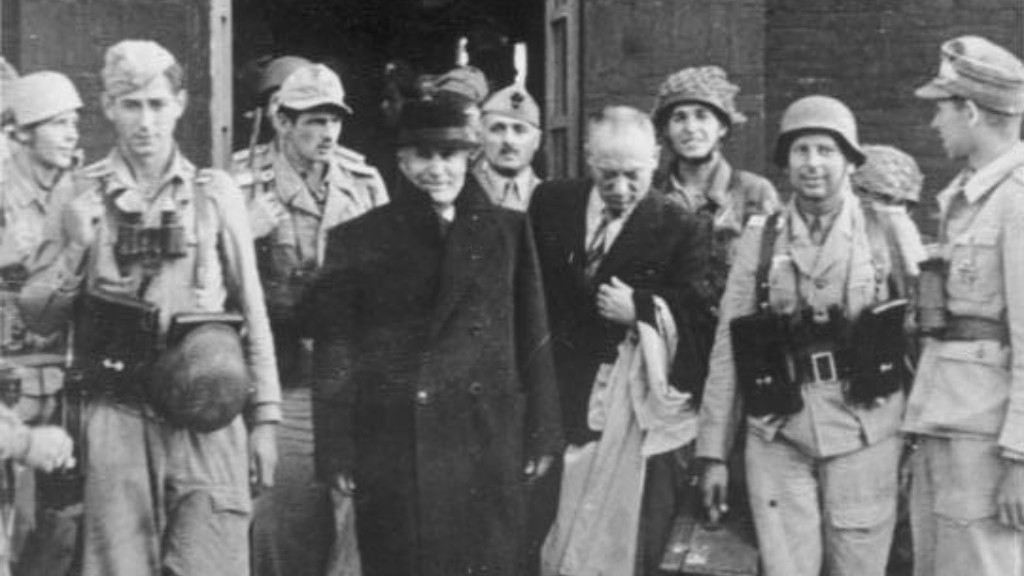When Muammar Gaddafi assumed control in Libya in 1969, he ‘completely changed the political climate of the country.’ Gaddafi used his power to promote a model of ‘direct democracy’—a strongly centralized system where citizens voted on the implementation of private laws and policies passed down from the Revolutionary Command Council (RCC).
Under Gaddafi’s rule, he abolished the monarchy and a large part of the civil society and introduced his own political agenda. The majority of Libyans were not permitted to participate in politics or hold office. He also dissolved the Senate, Parliament and the Supreme Court, replacing these with the People’s Committee and the Revolutionary Command Council.
Gaddafi’s government implemented harsh laws and decrees to maintain control, such as restrictions on the press and a ban on protests. People could not speak against the government without fear of being arrested. He forbade any discourse that could be perceived as undermining his regime.
Gaddafi also imposed controversial economic measures. His regime nationalized many of Libya’s private industries and placed restrictions on foreign investment. These steps led to a stagnation of economic growth. Much needed infrastructure reconstruction and modernization was not implemented, leading to high unemployment and limited educational opportunities.
During this period, many human rights abuses were reported by international organizations such as Amnesty International. The government was criticized for its use of torture, arbitrary arrests and unfair trials for political dissidents. Religious persecution also occurred with state-sponsored control of mosques and restrictions placed on religious minorities.
In his decades-long rule, Gaddafi saw himself as a revolutionary hero, the defender of Arab pride, and the promoter of Pan Arabism. He oversaw several conflicts in the Middle East and Africa, such as the Arab-Israeli conflict, and his rule was characterized by support of terrorism and assassination attempts in other countries. In 2011, the International Criminal Court issued a warrant for his arrest on charges of crimes against humanity.
Eventually, Gaddafi’s rule came to an end when the Libyan Civil War erupted in 2011. He was killed in October of that year and the country eventually transitioned to a new system of government.
Gaddafi’s Influence on Today’s Libya
Since Gaddafi was deposed from power in 2011, Libya has seen a dramatic shift in political structure, culture, and national identity. While Libya is no longer a dictatorship, it is still plagued by internal conflict and political unrest stemming from Gaddafi’s rule.
Gaddafi’s policies encouraged tribal divisions and entrenched patronage politics, posing a challenge for political elites to create a cohesive nation while ensuring minority rights are respected. These factors have hindered the country’s economic and social development, making it harder to build trust among the country’s many different groups.
His rule also led to a breakdown in education and public administration systems. Many of the country’s services are precarious and lack resources, infrastructure, and personnel, exacerbating public dissatisfaction with the government and decreasing people’s trust in the political system. The government is also struggling to recover from decades of economic mismanagement, increasing poverty and unemployment.
Gaddafi’s legacy continues to have a lasting effect on Libya today. The divisions he fostered and the social, economic and political instability his rule created are still present in the country.
Reclaiming Sovereignty
Libya was under international control for many years following the 2011 revolution, with the United States, the United Nations, and the European Union all playing a major role in attempting to support transition. In December 2015, the country held its first national election in several years, marking an important step towards restoring democracy and self-determination.
The transition from Gaddafi’s rule has not been easy and the road ahead is still uncertain. However, the country is beginning to reclaim the sovereignty and autonomy it had lost under Gaddafi’s authoritarian rule.
In order to ensure a stable transition, the government must address the many unresolved issues that remained since Gaddafi’s time and implement measures to ensure that human rights and minority rights are respected. This includes tackling corruption and strengthening government institutions, as well as improving access to public services and economic opportunities.
For years, Libya has suffered from a lack of accountability, but with a new system of democratic governance, there is an opportunity for the country to build elements of trust, thus allowing for a secure basis on which progress can be made.
Identifying historical patterns
As the country continues its transition from authoritarianism, it is important to remember the lessons learned from Gaddafi’s rule and apply them to the future of Libya. This includes looking at historical patterns that contributed to his success and how they can be avoided in the future.
Gaddafi’s rule was characterized by a concentration of power, restrictions on dissent, and a lack of accountability. In order to ensure that a similar situation does not occur in Libya again, there must be strong respect for the rule of law, an independent judiciary, strong institutional safeguards, and a legitimate opposition.
It is also important to look at the economic policies implemented by Gaddafi’s regime and the consequences they had on the country. The economic policies passed under his rule did not spur growth and led to high inequality, so it is essential that Libya looks to alternative policies that can promote economic development and ensure that citizens have access to basic services.
Ultimately, by critically assessing Gaddafi’s rule, Libya has the opportunity to create a more democratic system that respects citizens’ rights and ensures their wellbeing.
International Response to Post-Gaddafi Libya
Since Gaddafi’s fall from power, the international community has sought to support Libya’s transition through economic and technical assistance. Various countries, including the United States, have provided financial aid, while the European Union has lent its support in terms of political and diplomatic engagement.
The international community has also played an important role in providing technical assistance and training to help the country move towards democracy. This has included guidance on institution-building, developing the rule of law, and ensuring respect for human rights.
The international community has also sought to support the country in terms of security and countering terrorism. The United States has provided assistance in the form of weapons, training and intelligence sharing, while European countries have provided support for security forces on the ground.
The UN has also had a presence in the country, assisting the government in strengthening its security capacity and developing its democratic institutions. Additionally, the UN has sought to reduce the presence of militias, which have been a problem since Gaddafi’s time.
Engaging civil society
Civil society has been an important driving force in Libya’s transition from authoritarianism. Civil society organizations have played a critical role in advocating for democratic reforms, providing services to marginalized populations, and monitoring the government.
Civil society organizations have organized protests, engaged in political dialogue, and initiated campaigns to educate citizens on their rights. They have also been involved in efforts to reduce corruption, improve the rule of law, and promote economic development.
The presence of civil society is essential for a successful transition from dictatorship and ultimately, for a successful democracy. It is important for civil society organizations to continue to be engaged and to play a key role in the country’s processes and policies.
Future prospects for Libya
The future of Libya is uncertain, particularly given the current instability in the country. With the international community continuing to provide assistance, a number of steps can be taken to ensure that the country transitions successfully from dictatorship to democracy.
The government must address the economic and social issues present since Gaddafi’s time. This includes tackling corruption, strengthening government institutions, and ensuring access to public services and economic opportunities. Efforts must also be made to build trust and relationships among the various groups in the country.
Ultimately, Libya must look to its past to ensure that it does not repeat the mistakes of Gaddafi’s rule and to develop an environment that is conducive to democracy, prosperity and justice.


